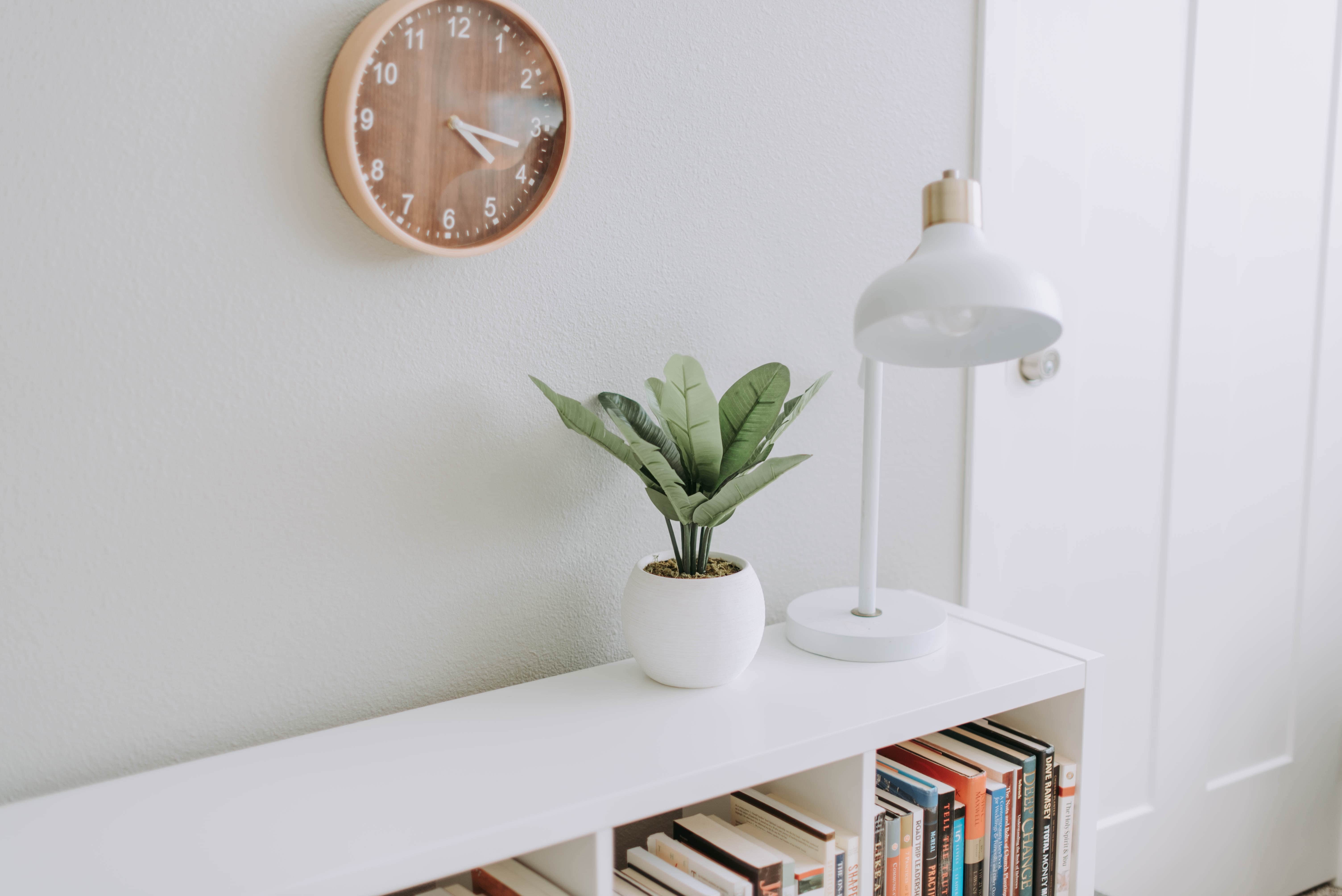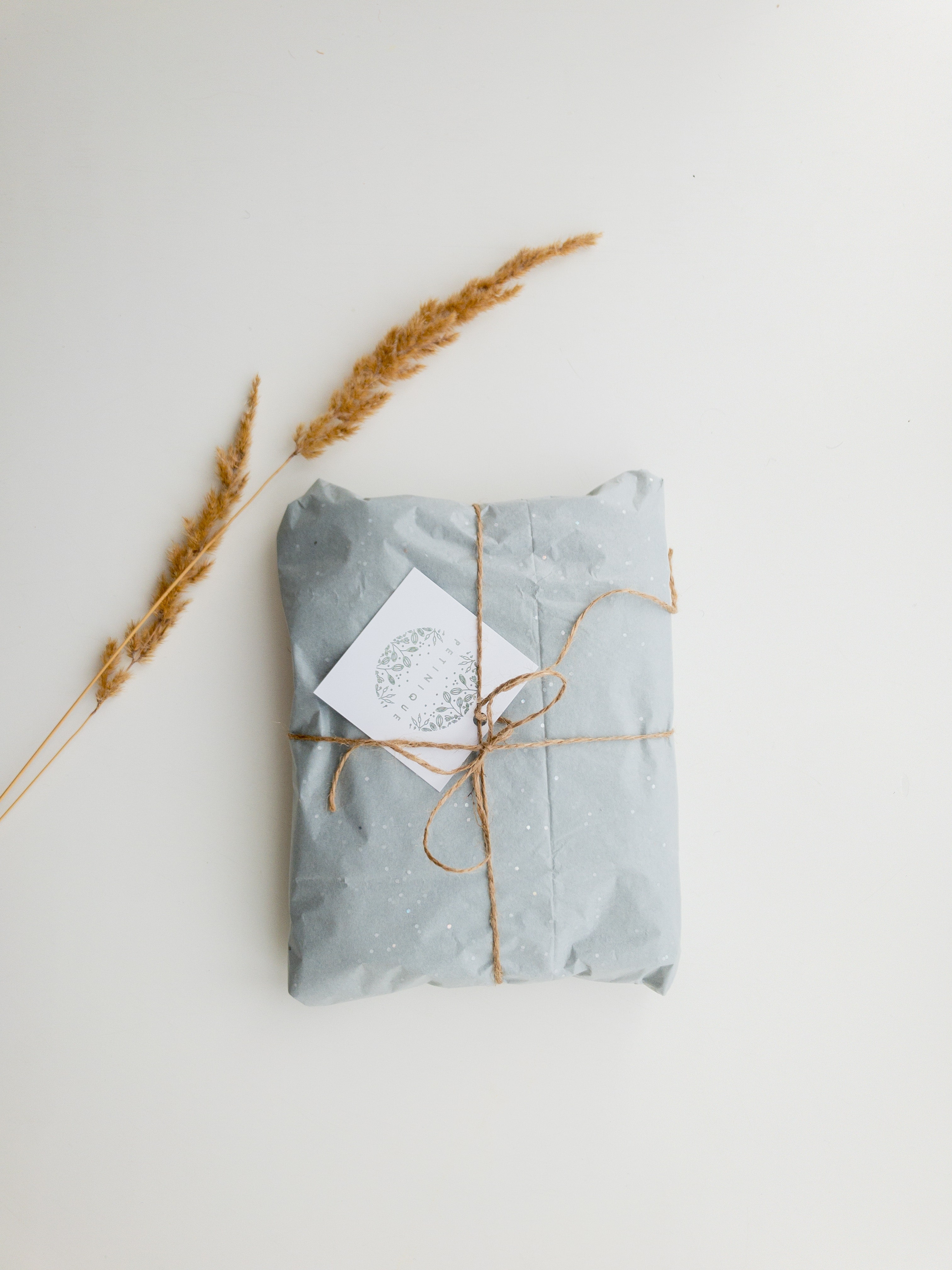Before I started my decluttering journey I had no idea how much my stuff was holding me back. I wasn’t aware of the daily struggle clutter bought with it or how it added to my stress and anxiety.
When I decluttered my first set of drawers that contained my shirts and shorts, I was amazed at the difference this one small change made to me. It seems silly that such a small change – decluttering two drawers, had any impact on my life but it did and that positive change grew exponentially from there with each decluttering project I tackled.
Decluttering benefited me in many areas of my life that I couldn’t have ever expected. Here are 8 Ways Decluttering Helped Me to Live a More Intentional Life.
8 Ways Decluttering Helped Me to Live a More Intentional Life.
1. Decluttering highlighted my impulsive consumer habits
Very early on in my decluttering journey, I became aware of numerous impulsive consumer habits I had picked up over the years. My wardrobe and bathroom were hard evidence of these less than desirable shopping habits. As I decluttered my bathroom, I saw lip balm collections, a foundation for every day of the week, and hand lotion bottles galore.
I didn’t have what I needed – the essentials, or even just a little more in case I ran out before I could get to the shops. I was apparently preparing stockpiles for the shops to close for a good year based on my collections
As I decluttered each item: shampoos, conditioners, hair products, makeup, and the like, I realised that I really didn’t need all those excess items and over time implemented new consumer habits to limit what I was bringing into my home.
2. Decluttering helped me appreciate experiences over things
Before I decluttered my home and cleared the excess, I was your average shopper. Most likely addicted and spending mindlessly on things I didn’t need.
I’d wander on my lunch breaks shopping for nothing in particular, spending my hard-earned paycheck.
Buy things just because they were on sale, even if I had no idea what I would do with them when I got home.
Waste my weekends in the mall buying things I didn’t need instead of doing things that added value to me.
Decluttering helped me lead a more intentional life as I slowly saw the value in experiences over things. After clearing over half my wardrobe, a buy one get one free sale sign lost its pull over me. I slowly started replacing my habits of buying things on impulse and instead learned to appreciate experiences. Experiences I could remember, and think back on with fondness, that didn’t require me to take some item into my home where I would have to find a place to store it, dust, and maintain it.
Over time I saw myself spending less money at the mall. Instead, I spent my money on experiences that I could enjoy and share with others, like going to the movies, a concert, or travelling. I noticed later in the year I’d long forgotten the new jewellery and perfume I got for Christmas, but years later remembered my first trip to New Zealand for my 30th with fondness and my honeymoon to Europe. I realised that when I invested my time and money into experiences and things I truly enjoyed, I didn’t need to go and shop to fill some void.
Declutter With Me Decluttering Course
Are you finding yourself overwhelmed and stressed out by clutter in your home?
If you’re looking to minimise the excess in your life, Declutter With Me: A 12 Week Guide to Declutter Your Home is a go-at-your-own-pace course that will give you the step-by-step, room-by-room instructions to help you clear the clutter in your home in as soon as just 12 weeks!
But clearing the clutter isn’t just about getting rid of your excess stuff. It’s important to change your behaviour and consumer habits so you can avoid re-cluttering your space once you have decluttered. Included in Declutter With Me, are “Keep It Minimal” tips for each area in your home + 7 Tips To Help You Keep Your Home Minimal, to give you strategies you can implement to help you spend with intention so you can avoid bringing clutter back into your home.
If you are keen to minimise your unwanted clutter check out Declutter With Me so you can create a home you love!
3. Decluttering helped me be more mindful of gifts I gave to others
As I decluttered my home, I noticed a lot of gifts, that were bought with generosity and good intentions from family and friends had gone unused or weren’t adding value to us anymore. This made me reconsider my own gift-giving habits and be more intentional with what I gifted others. I stopped my usual gift buying habit of heading to the shop and browsing for the perfect gift, realising that the perfect gift isn’t always going to be found on a shelf at the mall.
I started to get more creative with my gifts. Some new habits I’ve implemented:
- Buying experience gifts such a a massage, tickets to a concert, musical or kids attraction
- Asking people directly what they would like for a gift
- Taking a loved one out for a meal or experience
- Making a contribution to a loved one’s travel savings fund
- Performing or recording a song for a loved one
- Gifting gift cards to their favourite store
If I know someone needs something for their home or wants something specifically I am more than happy to go out and get that item for them, but the shops are now something I only step into with intention when it comes to buying gifts
4. Decluttering made me more intentional with my time
After decluttering my home, I knew that I would never, ever, let my home get into the cluttered state that it was ever again. I wasn’t prepared to make all that decluttering progress just to go back into old clutter-accumulation habits. I was done.
Decluttering also made me see how unintentional I had been with my time.
Whether that be the time I spent looking for things around the house that had been misplaced, the time I spent trying to keep up with an overflowing wardrobe and the laundry that ensued, and the time I had spent shopping for things only to cluttering up my home that took up my very limited and valuable time.
I realised how I had used shopping as a hobby rather than a tool to buy things I needed as I needed them. As I decluttered the excess in my home I chose to utilise my time going forward more intentionally. Instead of shopping every week or on my break by default, I built up a list over time and only went to the shops once a month and made one trip. This saved me battling traffic and car spaces on multiple trips and meant I could free up some time to do things that actually added value to me.
5. Decluttering made me more intentional with my money
After decluttering over 70% of our belongings, I was faced with the realisation of how much money I had thrown away over the years on stuff I didn’t need. I added up in my head the dollars each time I donated an item of clothing that still had the tags on or the art project or book I had never gotten around to. It was certainly an eye-opening experience and made me think long and hard each day that I tackled my clutter about how I could start being more intentional with my money.
Decluttering my home helped me to see the wasted money. I refused to continue to waste my money on impulse purchases that I didn’t need any longer, I had wasted enough. I wasted money on clothes that didn’t fit or suit me because I was too lazy to try them on. There was wasted money on shoes I bought that were not something I would ever wear, I just liked the idea of them. There was waste when I bought more makeup than I could possibly use up before it expired.
When I decided to spend more intentionally, it had a huge positive impact on our finances. We were less stressed about money, we had more money to pay down debt and work towards our financial goals, and could justify spending money guilt-free on things like an overseas trip.
It wasn’t my expectation when I started my decluttering journey to save money but was a hugely welcome side effect!
6. Decluttering made me more mindful in other areas of my life
When you eliminate the excess in your home, it’s bound to make you more mindful of other aspects of your life. It is not uncommon to declutter your home and decide to move houses, get a new job, or end a toxic friendship. Decluttering makes you assess everything you bring into your home and soon you will apply those same tools and skills to other aspects of your life.
The Minimalists talk about how they decluttered their homes and soon after, changed their spending habits, left their corporate jobs to start their own blog and both moved homes. Like The Minimalists experiences, decluttering helped me realise what did and didn’t add value to my life.
As I previously mentioned, I realised that shopping regularly did not add value to my life, so I reduced how often I spent shopping and built a list to get in one go. It helped me to reassess relationships and made me more appreciative of the friends and family that made an effort to be in our lives. It helped me realise what was and wasn’t important to me and gave me permission to let go of things like the hoard of books I’d hoped to get to and instead put my time and energy into things I was truly passionate about, such as this very blog
7. Decluttering made us more content with what we had
Decluttering helped us see that we didn’t need much to be happy. We have now been in our fairly modest-sized home for 8 years and a bigger home hasn’t been on our agenda for some time now, and we don’t see the need to upsize our home when now that we just keep the things we truly enjoy and use.
We still have the same TV we bought 8 years ago when we moved in, the same Fridge and Dishwasher and most of the same instruments
We try to make do with what we have and use up what we have before we buy more. I keep limited stocks of makeup and hair products, I’ve just bought my first new sneakers in 5 years and shock horror I buy one book at a time to read.
I don’t miss the days of duplicated nail polish, too many books to read, and the guilt that comes with that and having enough eyeshadow to commission an artwork. We try to be content with what we have rather than constantly chasing what others tell us we need.
8. Decluttering helped me to realise that it is okay to let things go
As a former hoarder, and a girl who was surrounded by many other hoarders growing up and probably picked up a few bad habits along the way, I completely get that it is hard to let go of things. I was so worried when I let things go that I would regret them and curse the day I started decluttering my home.
But to be completely honest with you. That hasn’t happened once.
I found ways to ease my inner hoarder such as taking photos of sentimental items before disposing of them and asking myself questions like ‘would I buy this again today?’ which helped me part with the excess in my home again and again. And most things that I thought I might need Just in Case, I knew I could apply The Minimalists 20/20 Rule and get them at the shop if there ever really came a time when I needed that item again.
And letting go of the excess came with so many benefits that outweigh any need to hold onto things. You’ll have more space to enjoy your home, homes are meant for living not storage. You have the ability to find and display the things that do add value to you, such as your favourite books not being covered by ones you’ll probably never read and the freedom of knowing that if you ever wanted to move, change careers, cities, or anything else, you won’t be burdened by all your clutter holding you back.
[Photo by: Samantha Gades on Unsplash.com]
What’s your biggest decluttering struggle? Let me know in the comments!








